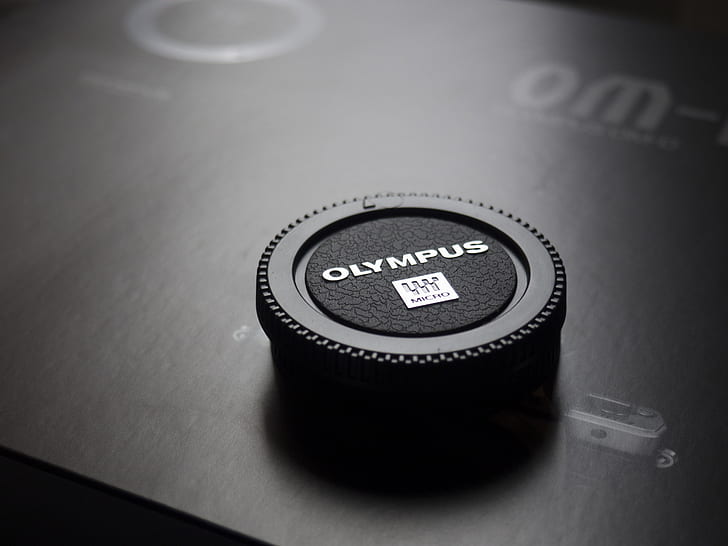
Olympus has announced it’s selling its 84-year-old camera business to Japanese JIP. It’s unknown if JIP will continue to develop and sell cameras using Olympus technology and brand.
Yesterday’s announcement was not a surprise as it had been rumored for some time. I view the news with sadness. I shot film photography with an Olympus SLR OM series camera 45+ years ago, and I currently own a digital OM-D EM-1 MKII kit today, which I’m planning to keep.
So my thought today is, which camera company/business is the next to fold?
I saw that news and thought of you immediately. We will see what transpires as large corporations manipulate things around in their efforts to make more money. I have always been impressed with the Olympus brand and come close to owning one once. Looks like adding the Sony to you arsenal was a good move. By the way, I like the image!
Olympus is a highly technical company that has constantly moved the bar higher. Their cameras are well-engineered and have a high build quality. I think their singular focus on the Macro 4/3 image sensor may have played a part in their undoing. It never captured a large audience. There are still lots of good images left in my Olympus and I have all the lenses I need for it. Sony may be the future.
Sorry, Monte, the image is not one of mine. It’s royalty-free off the Internet. I just needed a quick image for the post. :-)
Nikon’s problems may bear watching in the future as well.
That’s a shame. I’ve only had a small P&S Olympus many many years back. The thing was indestructible. I know a lot of people are big fans of their 4/3 products.
Honestly, I wonder how the market can support so many brands, especially with phones now replacing most P&S sales, and likely already eating into others that simply don’t need larger sensors.
Yea, Olympus was known for making some of the best-rugged P&S cameras, and their lastest OM-D had some exceptional specifications, but I guess the sales were just not there. Also, the camera division was only a tiny part of the overall Olympus business. Perhaps the new owners, JIP, will continue the product line? In any case, I’ll still use and enjoy my Olympus. :-)
Minolta sold their camera division to Sony and that turned out great for Minolta owners. Maybe the same will happen with Olympus :)
Haha…that’s true, Cedric. However, it’s definitely a difficult time to try to revive or reinvent a struggling business. Sony had it easy compared to now. I’m sad about the loss of innovation and competition Olympus brought to the market and for the fewer choices, we as photographers will have. But, for me personally at the moment, nothing has really changed. Thanks and take care.
You make a good point Earl, Sony did manage to get into cameras when competition and interest in camera gear was still climbing. And that is definitely not the case anymore with the emergence of phone cameras. Maybe JIP will surprise the world with something new and cool. Let’s hope. A lack of competition in any field is rarely, if ever, a good thing for end users.
I think you hit the nail on the head, Earl. The fundamental “problem” is the Micro 4/3 format. The sensor is great so long as you have a reasonable amount of light. As you and I have discussed, I switched to Sony for that reason alone. In low light, there’s no contest. Olympus bad, Sony good. Still, I loved those Olympus lenses. Small, compact, and affordable. I know Olympus owners are hoping that the new company will continue the brand. Well, think Kodak and Polaroid. Ain’t going to happen.
That’s my thinking too, Paul. Olympus engineered the hell out of the Micro 4/3 system but it just can’t overcome the sensor’s physical limitations. It doesn’t have the dynamic range that larger sensors have. As you stated it can’t compete in low light and it also tends to more easily blow out highlights. I do love the system as a whole and there are some great affordable lenses. Thanks.
I agree with your ‘who’s next’ comment, Earl. The problem appears to be a rapidly contracting market for cameras in general, an almost complete decimation of the consumer market by the cellphone plus an over-abundance of choices in the enthusiast/pro space. Like Mark, I’ve only owned an Olympus point & shoot – the very worthy TG series. I’ve long admired their engineering and design and nearly went that route when I replaced my Canon gear. I always tend to side with the underdog and was rather hoping that Olympus and Fujifilm would be the evolutionary favorites. But unfortunately capital and clever marketing can only support sagging sales for so long, and I think that’s what we’ll be seeing over the next few years.
Yeah, the best camera is the one you always have with you and in most cases these days that your phone. And the latest phone camera is pretty dang good. Then there’s the case that currently dedicated cameras are so good very few can utilize their full capabilities. That can mean a slower upgrade cycle by users or if they do upgrade they may not upgrade to the very latest model (example, Monte and myself.) I believe there may be one other major camera player that drops out in a year or two. At the moment, Nikon may be in the worst financial shape but that could change. It’s a tough market out there and it will probably get worst for camera manufacturers. But, meanwhile, we get to enjoy some great cameras.